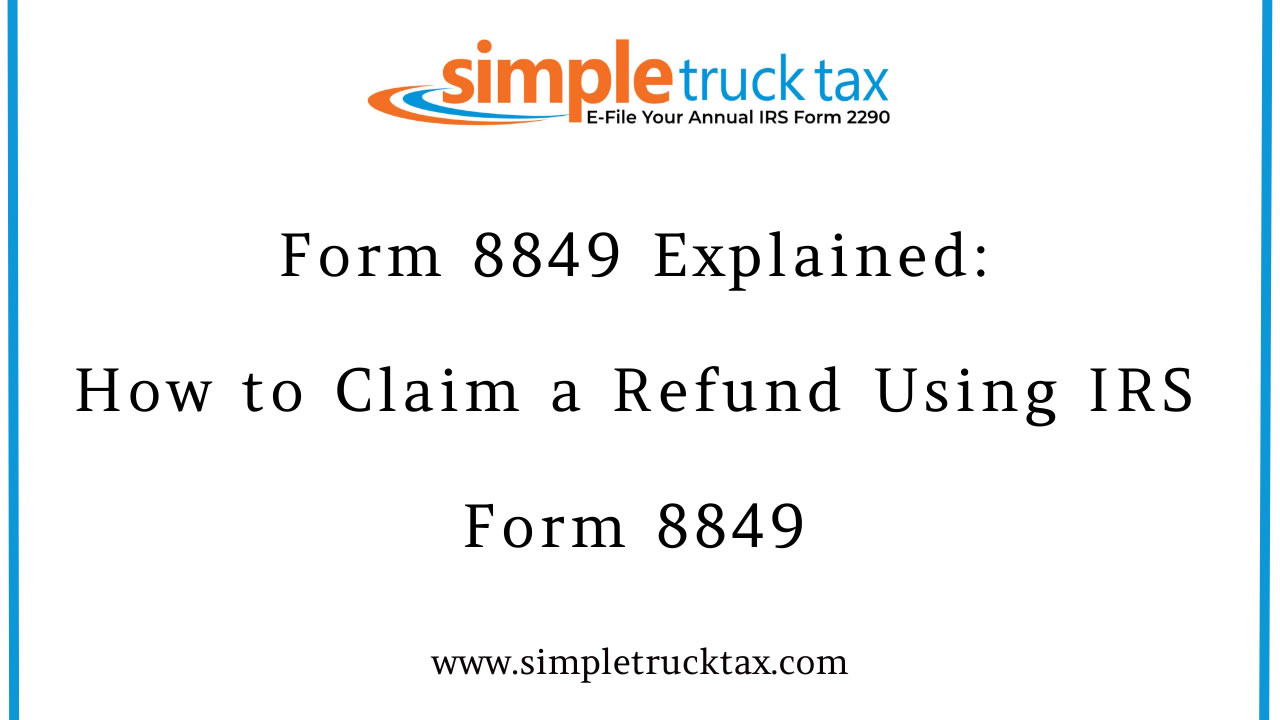
Form 8849 Explained: How to Claim a Refund Using IRS Form 8849
The IRS tax form Form 8849 enables users to request refunds for specific federal excise taxes which include fuel taxes and the Heavy Vehicle Use Tax (HVUT) credits.
Empowering American Truckers with Simple and Affordable Tax Solutions